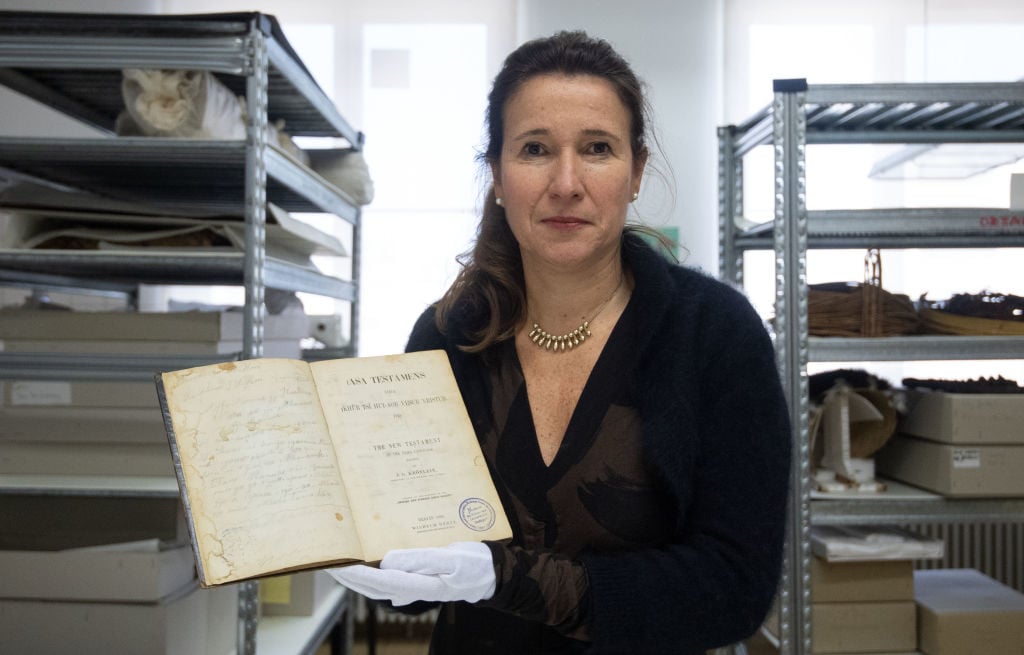
Months after a groundbreaking restitution report commissioned by French President Emanuel Macron set down terms for the country’s approach to its dark colonial past, Germany is moving forward with its own repatriation plans.
On Wednesday in Berlin, culture ministers from all 16 German states gathered for the first time to address the country’s trove of potentially looted artifacts, which are in the collections of museums across the nation.
Despite the fact that the ministers represent political parties from across the ideological spectrum, their inaugural meeting concluded with a “joint declaration on the handling of colonial collections.” Ministers say the unprecedented document will lay the groundwork to establish conditions for the repatriation of artifacts from public German collections. “The return of cultural assets should not only be possible, but also actively pursued,” Carsten Brosda, the senator for culture of the city-state of Hamburg, told BR24.
“Germany has missed the chance to make a big political gesture like France, but this document shows it is taking the subject very seriously,” Jürgen Zimmerer, professor of African history at Hamburg University, told The Art Newspaper.
Among the key points of the agreement is a call to restitute human remains, which “do not belong in museums,” according to the document. The ministers are also urging museums to digitize their collections so that origin countries can gain better insights into what objects remain abroad. They are supporting provenance research for works associated with the colonial era and plan to establish a single point of contact to centralize repatriation claims. (The full document is available in German here.)
The country’s senator for culture and Europe, Klaus Lederer, said the significance of the document “cannot be overestimated.”
The resolution comes amid mounting pressure on Germany’s government and its museums to take larger responsibility for the nation’s colonial legacy. This fall, the Humboldt Forum, which is built in the style of a Prussian-era palace, is due to open in Berlin with an expansive collection of objects from Africa and Asia. But the project has been criticized as simply another monument to colonial history. (We reached out to the Berlin government to ask if the declaration will have any direct impact on plans for the museum, but did not hear back by press time.)
But the country has been making some concrete steps to face its past. In February, the state of Baden-Württemberg initiated the return of a culturally significant whip and the “Witbooi Bible” to Namibia, which had formerly been brutalized as a German colony. “It is important that everyone pulls together on this issue,” Monika Grütters, Germany’s minister of state for culture, emphasized in a statement about the bible. She said that a “new dialogue” with countries of origin will take place in a “spirit of partnership and dignity.”
In the preamble to the new Berlin document, Brosda, the Hamburg representative, wrote: “In our understanding, all people should have the opportunity to encounter their rich material cultural heritage in their countries and societies of origin, to deal with it and to pass it on to future generations. The injustice that took place during the colonial period and its consequences, some of which still have an effect today, must not be forgotten.”